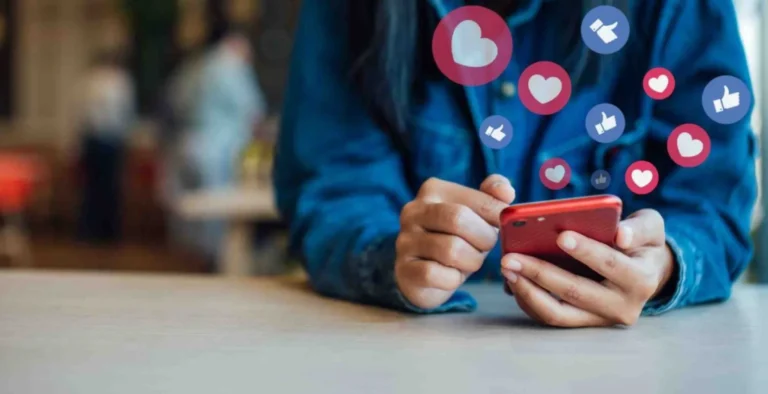Although social media is everywhere and has changed how we communicate, relate to each other and even see ourselves, we are novices at it in secret and with attention. But there’s a cost for this transformation. Social media influence over mental wellness has stirred debate among psychologists, sociologists, and experts in digital culture. Discussed in this article are how social media could affect your mental health negatively and a few ways to achieve responsible usage of these platforms.
The Positive Side of Social Media
The social media site has shown many benefits in this regard, even though it has its controversies:
Breaking Isolation
Even for people with social anxiety or those who are otherwise isolated in distant places, Facebook groups or Reddit threads exist to provide safe places for people to connect and share experiences using those forums. These communities allow sharing of advice through people buffering through similar trials.
Opportunities for Education
Mental health awareness is now just a click away through various social media campaigns where in the past, finding such education was almost impossible. Advocates, therapists, and organizations operate thousands of accounts to share useful self-care, stress-management, and mindfulness tips.
Advocacy
The media, especially the social networks can be an outlet for millions of problems. It once ‘Kumbha’-landed #BellLetsTalk and #ItsOkayNotToBeOkay campaigns around the globe in dialogues against groundless stigma about mental health.
Motivation and Inspiration
Motivational speakers, fitness influencers, or creative professionals can successfully motivate people into achieving their individual goals through a sense of having a purpose. The magical ability to do this is through instilling a sense of expectations and optimism.
The Negative Impacts of Social Media on Mental Health
On the contrary, social media is not an exception to rule of a double-edged sword. It would have far too negative effects for apparent benefits of usage, if either overconsumption or unintended usage is practiced:
Pressure for Perfection
Instagram and Snapchat are banking on visuals that may often become idealized and curated imaginations of how life should or could be. Unfortunately, these highlight reels may only add to the already distorted self-image of many, very heavy low self-worth and dissatisfaction.
FOMO (Fear of Missing Out)
This can be intensified by keeping going through pictures of your friends on vacation, partying, or otherwise, while also showing everyone else amazing life accomplishments. FOMO can steal peace of mind, leaving anxiety behind.
Cyberbullying and Harassment
Anonymity breeds bullying, trolling, and harassment through social media enormously. This, ultimately, could tear apart a person’s self-worth,and eventually into emotional catastrophe.
Deluge of Information
Consuming information, after all, is good. However, an endless and ceaseless stream of bad news and contrasting opinions would leave one feeling overwhelmed, puzzled, and soulless.
Scientific Insights on Social Media and Mental Health
Studies reveal the complex associations between social media and psychological well-being:
- Michigan study showed that increase in Facebook use correlated with loneliness and lower life satisfaction.
- Said research published in Journal of Adolescence linking high social media use directly with major depressive symptoms in teenagers.
- Another such report by Royal Society for Public Health listed social media platforms based on their impact on mental health. Instagram and Snapchat surprisingly topped the charts as among the worst for body image problems, and YouTube was the best.
Practical Tips for Healthy Social Media Use
To avoid the pitfalls of social media and maintain mental well-being, consider adopting the following practices:
- Set Boundaries
Allocate specific times for social media use. Avoid scrolling before bedtime to improve sleep quality and mental clarity.
- Follow Positivity
Unfollow accounts that make you feel anxious, insecure, or stressed. Instead, engage with content that uplifts and educates you.
- Engage Intentionally
Avoid passive scrolling. Interact meaningfully by commenting, sharing, or creating content to promote genuine engagement.
- Digital Detoxes
Take regular breaks from social media. Detoxing allows your brain to reset and refocus on real-life experiences.
- Stay Mindful
Reflect on how social media affects your mood. If it starts negatively impacting your emotions, reconsider how you use these platforms.
Modern Mental Health Conversations With Social Media
The aforementioned mental health promotion in the past, and recently, has been quite the achieving feature or utility finding its way into younger generations around. Such resources included TikTok therapists, mental health memes, and live Q&A sessions. All such bring psychological insights closer and make them more relatable. That said, users should be cautious, as not all this user-generated content is professional and evidence-based.
The Road Forward: Regulating the Digital Space
Technology companies have begun to realize their responsibility in terms of ensuring mental health safety. Screen time reminders, tools for content moderation, and AI-enabled filters to remove harmful content have all taken steps in the right direction, but all individual responsibilities must perform pivotal roles in order to develop healthier digital ecosystems.
Final Thoughts
Social networking is a subtle field when it comes to the effects on mental health. It’s truly the place where feelings of connection and self-expression have no matched equivalent outside. However, it equally has some dangerous pitfalls. The only key here is in using these tools mindfully-in their benefits while at the same time reducing or getting rid of the risks.
If you are experiencing mental health issues and looking for professional assistance, visit All in the Family Counselling. Our well-versed team is here to assist you towards an emotional state of restoration and wellness. You need not be alone in facing these obstacles.
